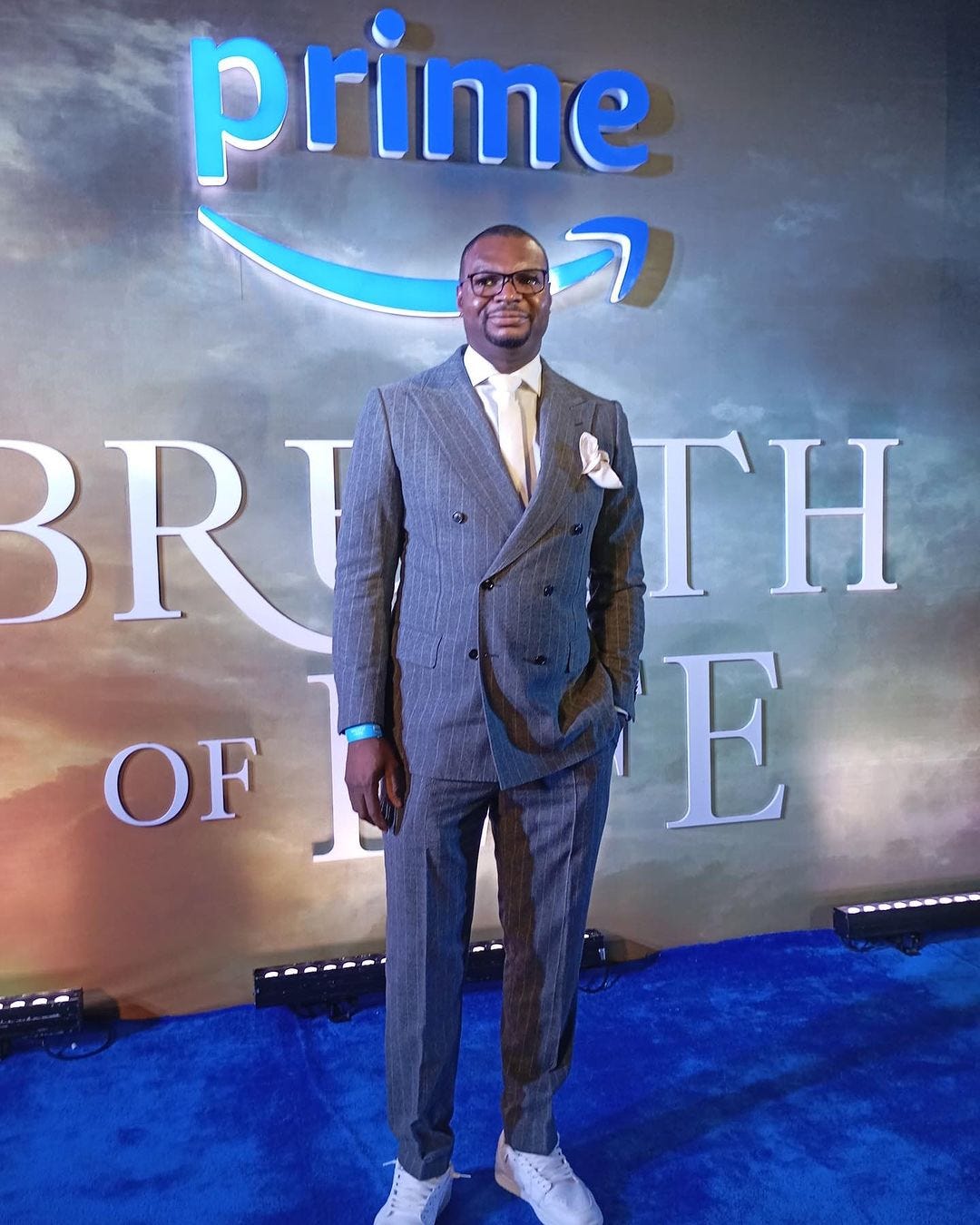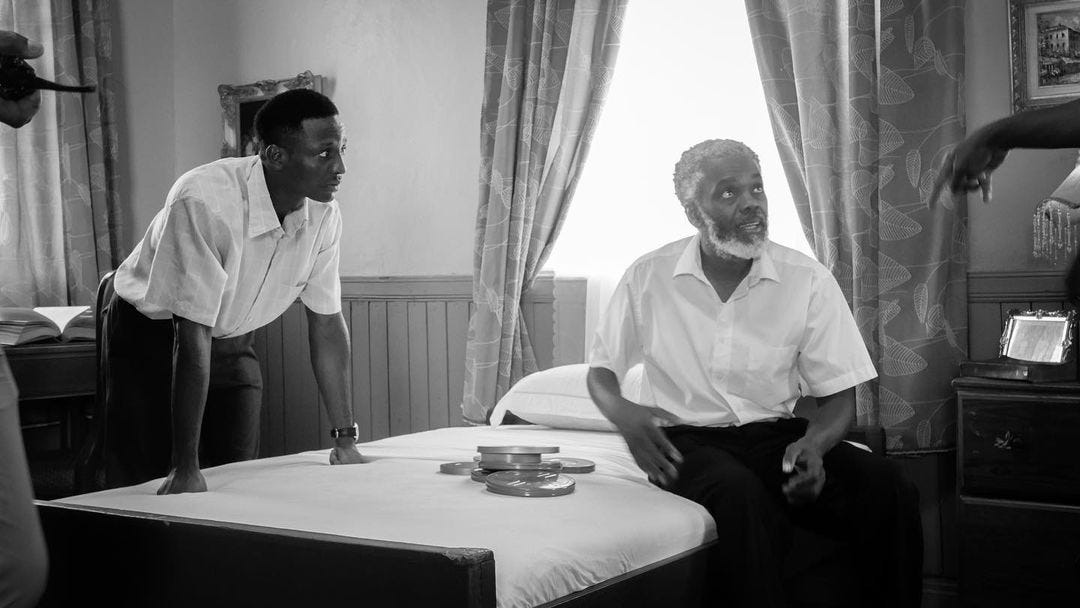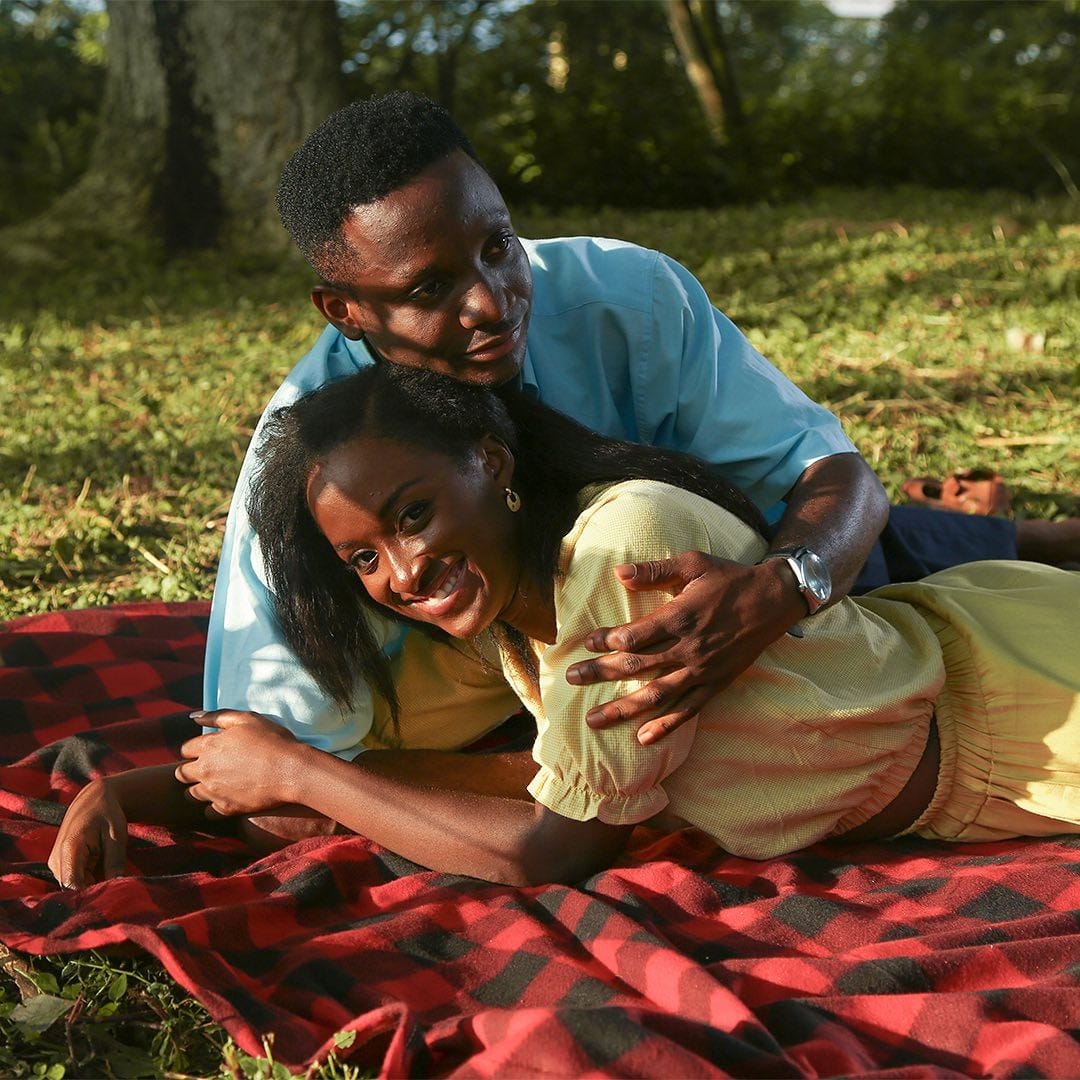In Conversation With BB Sasore: “I'm Not a Religious Person Per se.”
Sasore has made two well-received films about loss and redemption. Both faith-based and inspirational, but the filmmaker says his very Godly films are just strategic ideas.
The filmmaker Biodurin Sasore, commonly known as BB Sasore, is a very candid man. As we settle into this interview a few days before the global release of his latest film Breath of Life, he quickly mentions that he worries that people instantly think of beauty when they think about his work.
“The reaction is typically, oh my God, it looks amazing,” Sasore says. “That's humbling, but it's also sad, I guess, from a Nigerian cinema perspective, that we don’t have enough of a standard of quality that people look forward to beautiful looking things. When you watch something from Hollywood, you don't think of it as beautiful. You just accept it's beautiful and then get to, well, the story.”
To be fair, Breath of Life, the faith-based film he wrote and directed, is a remarkably stunning film. Set in Ibadan, amidst lush greenery and where the skies are clearer than Lagos, Nollywood’s favourite location, the film transports you to a fantastical and beautiful Nigeria. However, the sort of reception that Sasore wants has also followed: the film is praised a lot for the execution of its story and the performances of its cast, especially the charming chemistry between Genoveva Umeh and Chimezie Imo, alongside its beauty.
Sasore has made two well-received films about loss and redemption. Both faith-based and inspirational, but with a dedication to craft excellence that’s not seen or expected from such films. God Calling, released in 2018, follows Sade on her journey to redemption after an unconventional encounter with God. Breath of Life, the more recent film, is a fantastical tale following a man who loses everything for being noble and journeys through life alone and grumpy, before encountering a house boy who drags him back to faith.
Both films feed the idea that Sasore must be a devout Christian telling stories planted by divine inspiration, but when we ask, he surprises us with his answer. His very Godly films are very tactical business ideas.
“God Calling was a strategic film,” he explains. “It wasn't some inspired story. It was because we wanted to be strategic to make returns and grow a new genre.”
This interview has been condensed and edited for clarity.
There seems to be a recurring theme of loss and a journey to redemption in your stories. We are just a little bit curious about the connection of all of that and what inspires it.
This was purely coincidental, to be fair. Maybe there is a God factor in it, but as to the loss and redemption side of it, it made sense in God Calling as a faith-based journey, so to speak.
I'll tell you where the inspiration for this [Breath of Life] came from. My partner, Derin Adeyokunnu, had the idea, and we were very tactical in what projects or sort of what stories we tried to tell. And he said one of the things he hasn't seen in Nollywood is a male-male relationship. A bromance, for example. There are just so many romantic films, male and female, half of our films in Nollywood are that. Whether action or comedy, all of them have some semblance of romance; even Breath of Life does as well. We're not quite in a place in Nollywood where we are open enough to tell relationships of the same sexual orientation.
And Derin said we don't have any male and male. So he gave me three examples of really great films. The Intouchables is probably his favourite. It's a French film. They've done a remake in Hollywood with Kevin Hart and Bryan Cranston. I forget the name of that one, but in the French film, the guy who was the black guy was taking care of this white man who was disabled, rich white guy was disabled.
Then Shawshank Redemption and Scent of a Woman. We narrowed in on Scent of a Woman, but I honestly wasn't certain of my ability to tell a bromance story for ninety minutes that would keep our attention if it was just Elijah and Timi and this house and servitude. So, I said to him, what if we take the Scent of a Woman, but figure out what happened in the past that made Al Pacino’s character, Lieutenant Frank Salde, blind and angry. He’s like, oh, that's interesting. That's how we decided to add the period piece. It's only the first fifteen minutes of the film that has that period and my point is, if you just think about Frank Salde’s story, I don't know what it is, they never tell us, but there's probably some loss there.
Your films explore faith in a nonconventional way, in that they do not follow faith films the way we are used to them. Where does faith and trying to understand our relationship with God come from for you?
There are two parts to that answer. The first part is going to be a bit disappointing. I hope the second part sort of makes up for it. The first part is not as inspirational as people want the answer to be. God Calling wasn't an inspired film. God Calling was a strategic film. Although, I do think there is a God. I do believe in God, and I think God sort of punished us in his own way for that. Again, I'm not a religious person per se, but I do believe in the power of God as a master plan and things like that.
Ultimately, in Nollywood, we try to be very tactical in all the things we do, right? And that's why Breath of Life genuinely is the first film that I've made that I will enjoy. I actually like the film. Not just because I think it's complete but because it's a film made for me as an audience member. Before 30 is not for me. It's for women. I didn’t even watch Banana Island Ghost; I hate slapstick comedy. It's just what was trending in Nollywood at the time. So it was, let's see if we could do that.
At the time we were going to do God Calling, the big thing that we were talking to our investors about was returns and all there was [was cinemas]; streaming hadn't yet taken off like it has today. Netflix was around but in a tepid way, and they were paying very small amounts for content back then, except for the famous Wedding Party that they paid quite a bit for.
So one of the things my partner and I thought about was, you know, there's a whole genre that's not explored, except by Mount Zion. Nobody's done it on a big scale, and if we get this right, we basically have a cinema on every street in the country because churches abound and they have influencers. We don't have to go to Big Brother and Nigerian influencers. We have pastors who become our influencers and parishioners who become our audience.
Therefore we thought we were very strategic and going to convert all these churches to cinemas and they'll all pay us to screen! Okay. Faith-based film.
The second part?
The second part of the answer is that I am fascinated. That's why I said I hope the second part makes up for it. I am fascinated by human purpose. I am interested in the idea of some supreme being. God, for me; for other people, nature, Buddha, whatever it is. And the thing I am quite sure of is that we cannot understand the supreme being. We can't! We can never understand the master plan. You just can't, right?
But yet we try to define… we don't even try to understand God; we try to define God all the time. And I find that fascinating. With our puny brains, we can't even understand what the choices he's making are, yet we try to define God. And so that being said now leaves me conflicted as to what is the purpose of it all. What is the human purpose? And what is each individual's purpose? And I try to find what my purpose is. Derin and I are partners, and I think about it all the time: Is our purpose for storytelling and taking African storytelling to the world, and are we really making an impact there? What is the point of it all and all that stuff? So at that level, there's enough sort of fascination with that to say that some of this stuff may be inspired. Fair enough. But the actual content itself, most of it is strategic. Hope that answers.
It does. When did you know for sure that you were going to make “Breath of Life”?
Before the three-picture deal with Amazon, like most filmmakers, we had about three or four projects that we were kind of going with. I'd written Breath of Life, Ticket, Year by Demons, and Pray With Me. I had decks for We Don't Cry Here and something else, yeah, Albino.
So Breath of Life shot to the top of that pack but it rotated, there's a time when Demons was almost cast, but Breath of Life was really high up there for about six months. I was working on it and then Amazon came into town and asked to speak to us and we sent them a few things, and we all landed collectively on Breath of Life. We shot last July and August. So basically, Breath of Life would have been in early 2021 when I would have started that journey. And then release at the end of 2023, so almost three years.
After the film was screened at AFRIFF, the producer Eku Edewor talked about the whole process and how challenging it was shooting at Ibadan. We would just like to know what was the most challenging part of shooting and making Breath of Life?
I heard her speech too and I didn't realize it was that much stress, but that's the measure of a good producer. They're taking on all those things, and you, the creative side, are not really feeling it. Hard for me to say there was a bunch of stress. There wasn't anything extraordinarily different from what is normal in Nollywood. We have those stories, very weird anecdotes of things that happened but I can give you one or two of those.
An example is the scene where Baby Fire kills and Timi witnesses it, even though the scene ended up coming out nice and lovely, it wasn't what we intended at all. We had taken the old street in Ibadan. We had painted all the houses. We had put all these huge billboards from back in the 60s. We built a bus station with gas, petrol, an old petrol pump and bicycle stands, and built everything ready to go.
But before that, we went to shoot in the same street. Elijah was giving out papers and things like that. But Agberos did not let us. Though we had the military, we had everything, it didn't matter. They just kept interfering. The state tried to help us with the police, Amotekun and the military, but the way it works is you settle them, then they'll go and call more people. They'll stop the scene, then you'll talk. They'll stop for a while, then they'll come back. So we just could not shoot it. So I knew if we could not shoot that, how much more shooting people with guns, the bikers, this to that.
We cancelled that and just moved to the University of Ibadan. And we had to do that in real-time, just say, okay, we'll move the schedule maybe two days, this, that, that, and go and build everything by the river. So that carnival we did by the river, where the biking gang comes and kills, is makeshift. It was meant to be a main street in the town and he was meant to be by his car and we had all these effects that we had planned and as they're shooting him, the glasses smash in and all that stuff. So you have to makeshift certain things, but yeah, it's just sometimes things can be stressful, but I guess I don't really notice it because the producers do their work really well.
I think it shows how good Eku was on the set. For you not to have noticed some of the struggles that she was going through as a producer.
Yes, absolutely! She is the best in the country if you ask me. She's very good.
We’re going to round up with a question about actors, and particularly about the youngsters in ‘Breath of Life’. Genoveva Umeh and Chimezie Imo, who are fantastic actors. We want to ask this question in two ways. First, how do you decide on a casting generally?
I'm a bit spoiled. I'm really happy with how things have gone with the streaming market. It is built for companies like Nemsia. I'm not Funke Akindele, I'm not Kemi Adetiba. I don't know how to make box office hits. So cinema was never for me because I don't know how to cast for box office. I cast for my story. A lot of people thought the problem with Banana Island Ghost was that we didn't cast enough stars. Patrick Diabuah played the ghost, I could have put a hit comedian like Bovi or Basketmouth or somebody who has made a slam dunk hit. However, I don't cast for hits. I cast for the work. That's who I am.
Now, that being said, streamers make that easier. No doubt they want the stars. We have those conversations. They were very instrumental in the casting. But it allows me much more flexibility on who I feel could tell the story. With all the actors except Wale Ojo, we had multiple auditions, even for Demola Adedoyin who was on October 1, who's doing all my stuff, and I know how great he is. I do those auditions not to be weird and to try and just make actors audition. I do it because if there are more screen tests for me, I want to see you as the character, the little nuances and things like that. It has nothing to do with your talent.
And two, why Genoveva and Chimeze?
Typically, if you get a closed audition call from Nemsia, it's because we already think your talent is prodigious and good. It's now that we think you fit into this character well. We did multiple auditions with both Genoveva and Chimezie.
Chimezie, I must say, stuck out from his first round. Maybe there were three rounds or something. He just kept killing it and being the person. Genoveva was not our first choice till her last round. I'm not going to say who we had, except for all of us were like, ‘Oh, we're going to go with this person.’ And Genoveva came in, as literally the last person of the last round, and destroyed it. And it just shows, it shows on screen. She's a force.
I think two of them, Genoveva and Chimezie, are going to become unbelievable custodians of Nollywood acting. I think they're going to really carry that torch. They really are, and their chemistry and even them just being dark-skinned, all those montages of them dating, I felt like being young again and dating. I felt I wanted to be in the park, dancing with a girl or riding a bicycle; the chemistry was insane.






I really, really enjoyed this piece. I was pleasantly surprised by BB Sasore's honesty. God really works in mysterious ways.
👌💙 Ping!!!